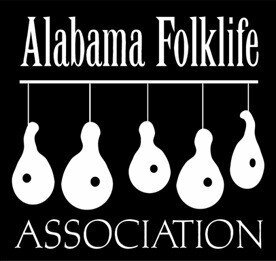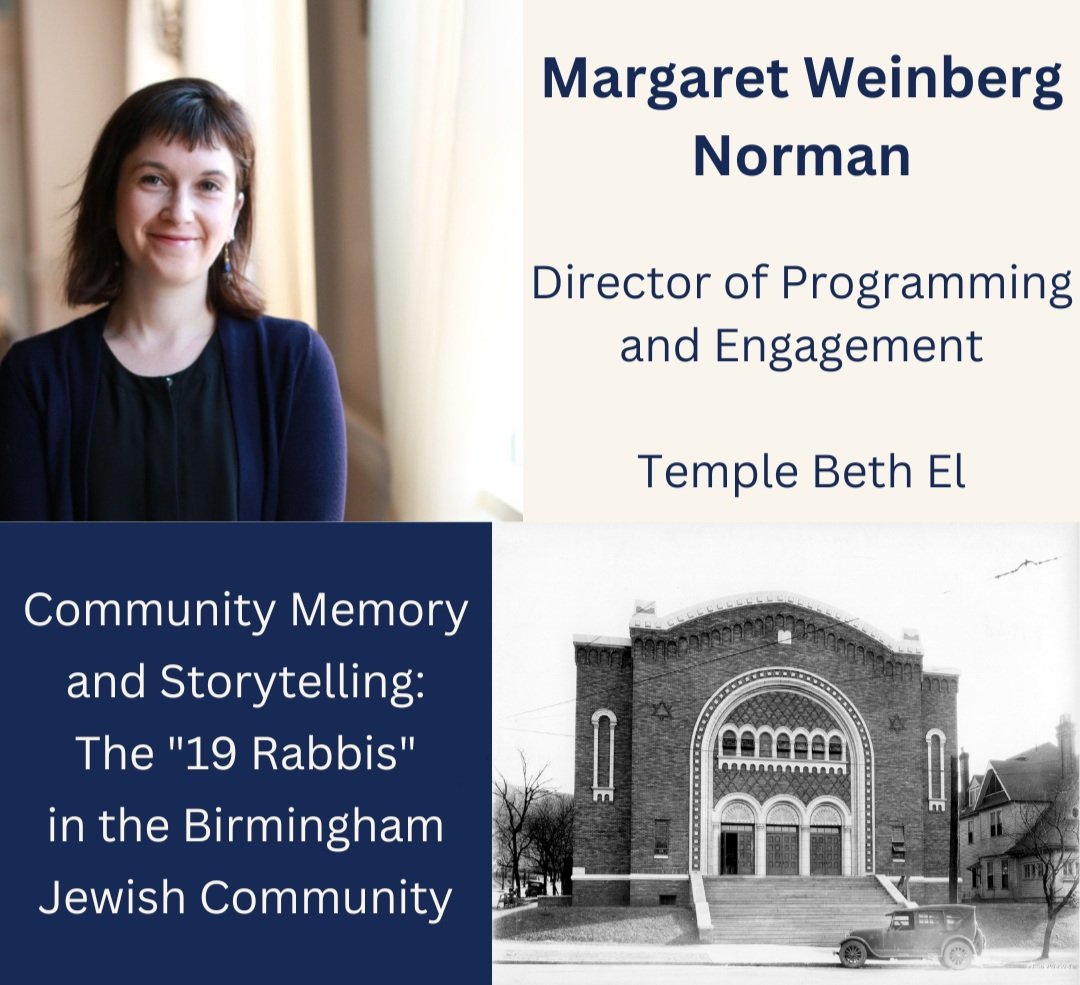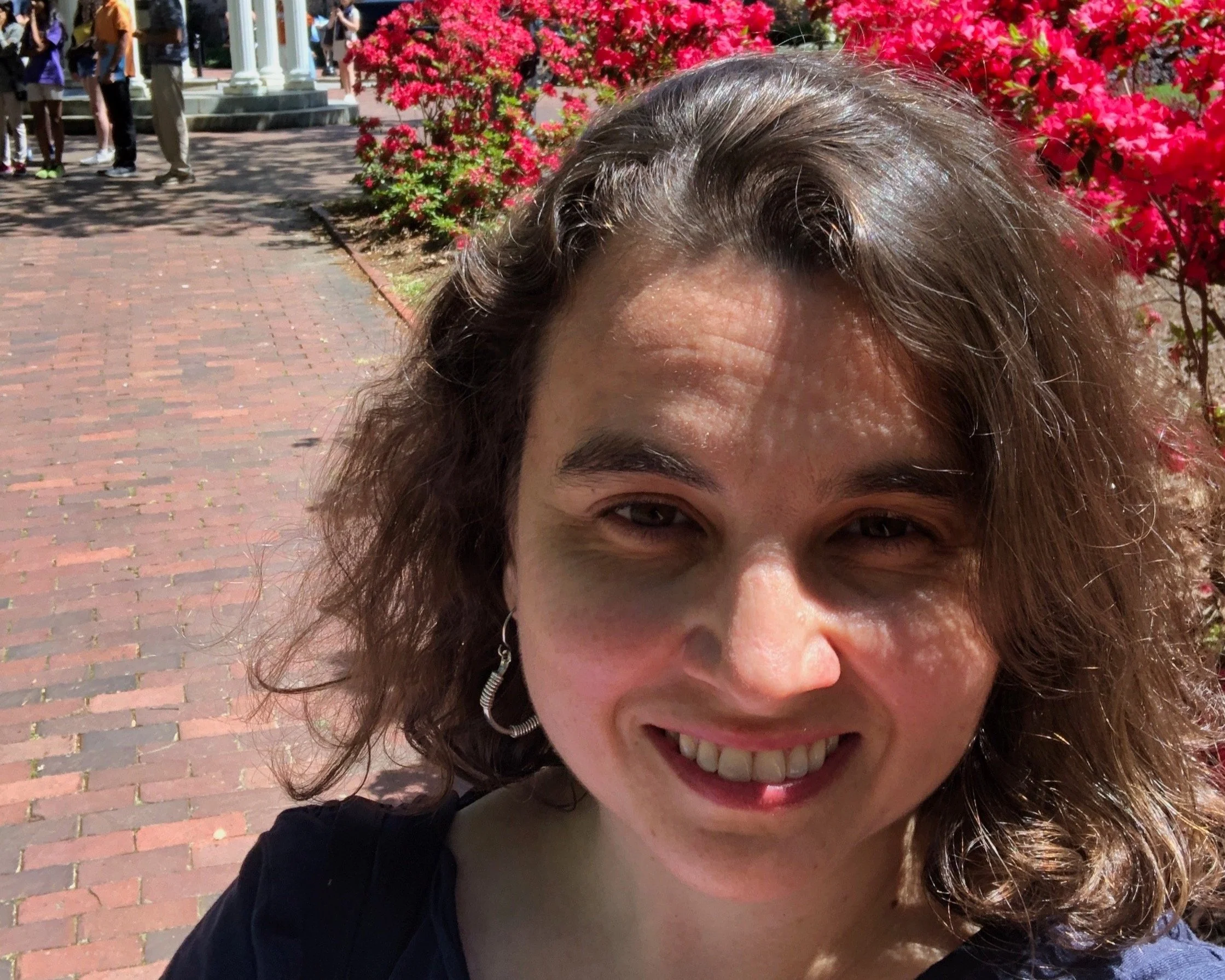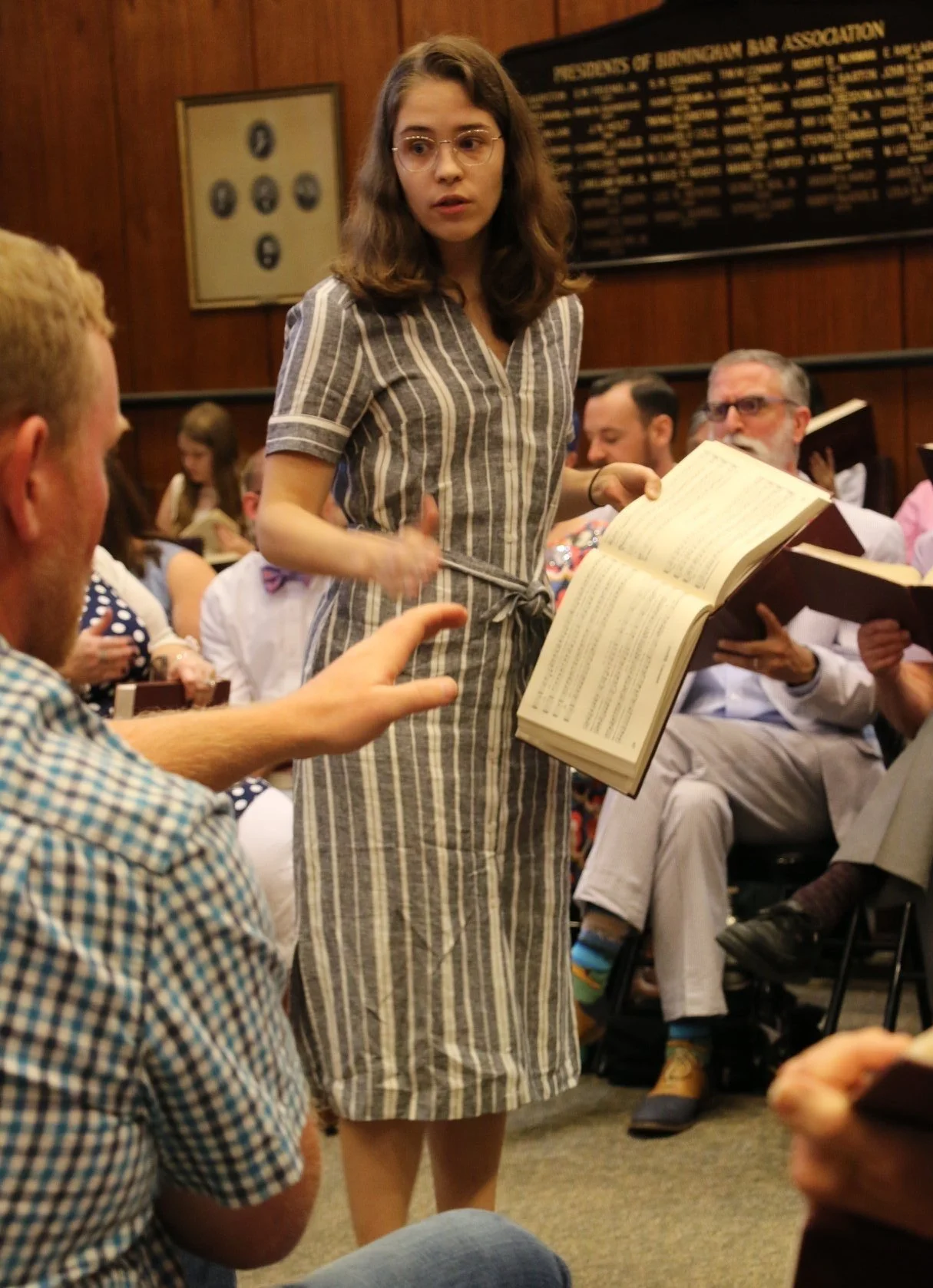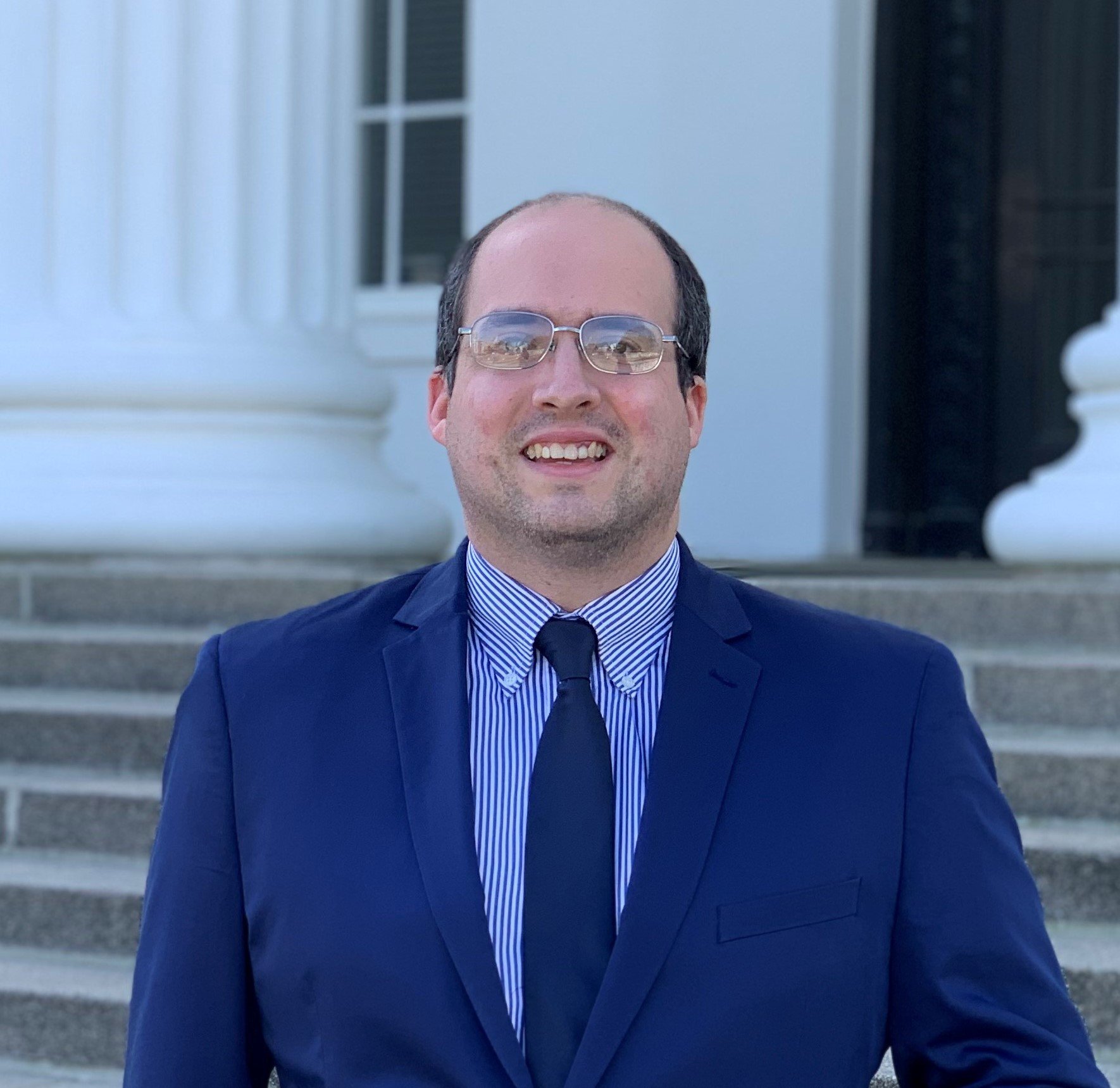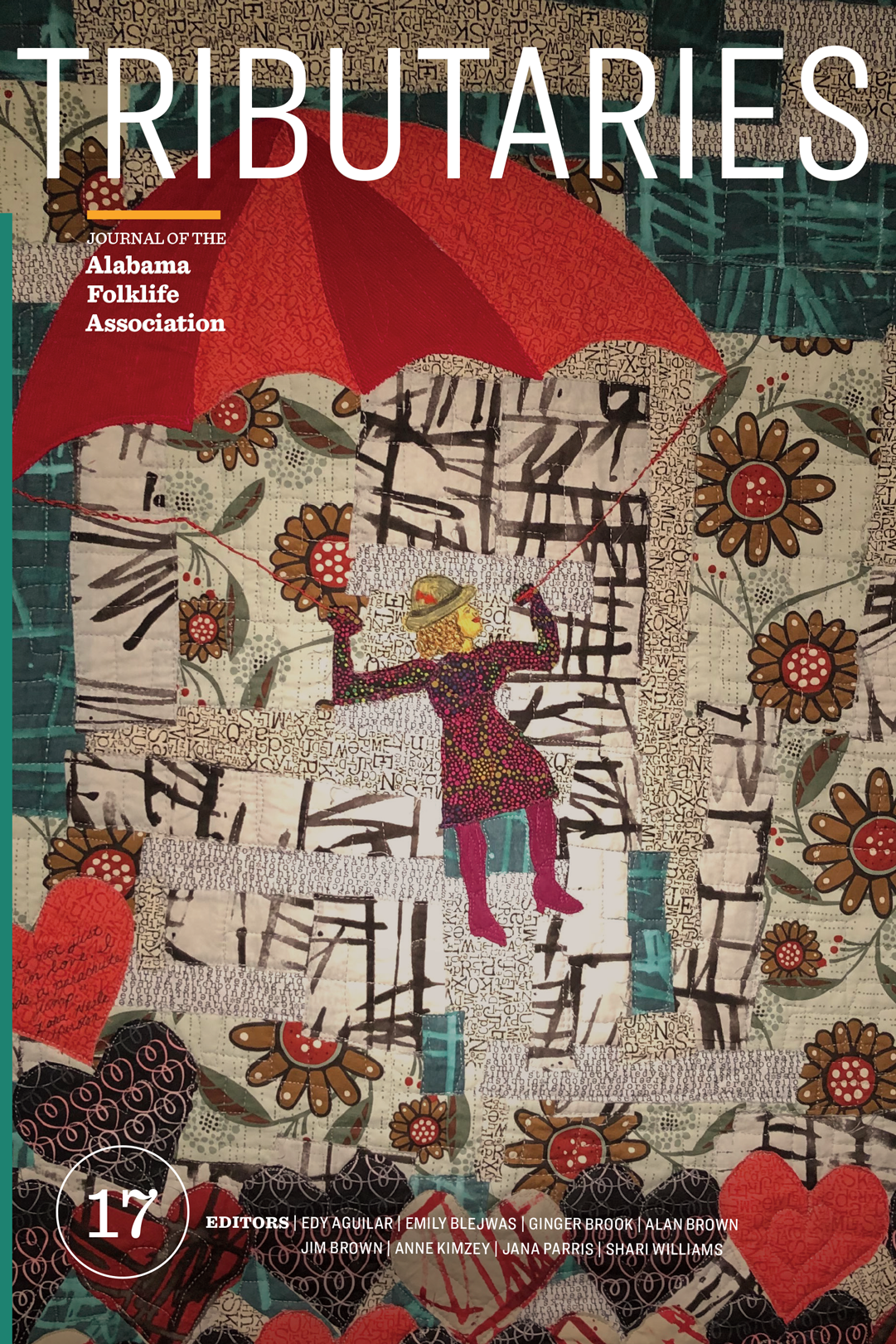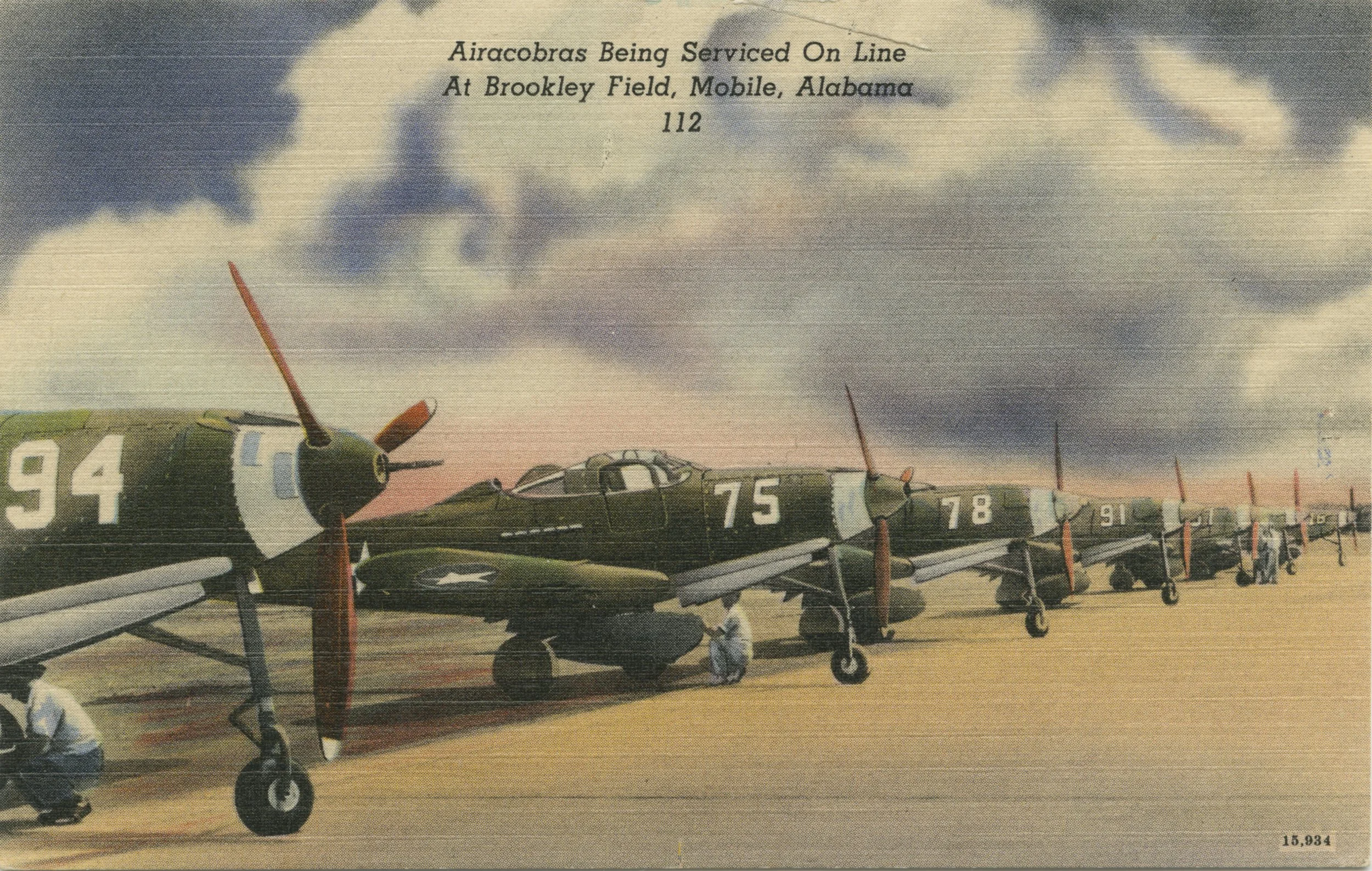Cauthen Fellowships are awarded to individuals to conduct original research on an Alabama folk tradition, defined as a tradition passed down through the generations or shared in community in Alabama. This includes, but is not limited to, music, dance, traditional arts, foodways, language, holidays, cultural practices, and work life. The fellowship period is one year, and research is expected to result in a written article for Tributaries, journal of the AFA. The next application cycle will open in 2025.
2024 CAUTHEN FELLOWS
2023 CAUTHEN FELLOWS
2023 JEWISH ALABAMA FOLKLIFE FELLOWS
In 2023, the AFA and the Alabama State Council on the Arts awarded three Jewish Alabama Folklife Fellowships to promote the documentation and preservation of Jewish folk traditions in Alabama.
2022 CAUTHEN FELLOWS
Dr. Zanice Bond · Memory, Memorial, and Bereavement Quilts
Storytelling is deeply embedded in the tradition of quilting. My research will broaden and enrich these narratives to include the lives of ordinary community members whose stories have been lovingly sewn together and celebrated through memory quilts.
Sarah Bryan and Hal Pugh · Alabama Pottery Traditions
Alabama pottery encompasses some of the great technological and aesthetic achievements in the story of Southern pottery. Our research focuses on the interaction of Indigenous American, enslaved African, and colonist European traditions on the Gulf Coast; the transformation of the Edgefield, SC tradition as expressed in Randolph and Chambers Counties; and the role of the Loyd family and other makers in Southern handmade funerary art.
Dr. Daniel Levine · Jewish Communal Memory Practices in Rural Alabama
This project explores the documentation of Jewish culture in the rural South – particularly in Alabama. I hope to develop community-based archival networks to facilitate the preservation of recordings, oral histories, record books, retrospectives, gravestone rubbings, and other artifacts, both for the descendants of these communities, and for students of history, folklore, and religion.
Burgin Mathews · The Fiddles of Earnest Mostella
Earnest Mostella’s fiddles belong to a broader tradition of handmade crafts passed down through generations in St. Clair County. My research seeks to uncover as many of these instruments as possible, bringing new attention to this unsung artist, showcasing the variety and innovation of his vision, and exploring his contributions to the legacy of African American fiddling as a whole.
Stefani Priskos · Sacred Harp Memorial Lessons
In a memorial lesson, Sacred Harp singers read aloud the names of the recently deceased, sing a song in their memory, and offer a short reflection on death, grief, and community. My research will examine how Sacred Harp singers in Alabama relate to the memorial lesson during the Covid-19 pandemic, exploring its role in processing grief, loss, and mortality, both individually and as a community.
Justin Rudder · Black Towns of Alabama
By building a geographical index of Black place names, this research will enhance our understanding of Black communities and their place in regional history, as well as recognize the achievements of African Americans and the vital ways they have shaped the physical and cultural landscape of Alabama.
The work of the 2022 Cauthen Fellows is featured in Tributaries 17, available as a free PDF and a hard copy for purchase.
2014 CAUTHEN FELLOWS
Alan Jabbour and Karen Singer Jabbour · A Tour of Bare-Earth Cemeteries
In examining eight bare-earth cemeteries in Alabama, some red-clay and some white sand, the Jabbours illumine the history, themes, and evolving practices of these unique spaces. As authors of the book, Decoration Day in the Mountains, they also provide an Appalachian cultural and historical context for these Alabama traditions.
Denise Dutton Benshoof · Documenting a Community: Prospect Quilting Heritage Days in Walker County
From the early 1900s, women, men, and children from families in Prospect, a farming and mining community in Walker County, Alabama, have picked and combed cotton, built quilting frames, and designed and sewed quilts for personal use and school and church fundraising. Benshoof’s research documents the work of quilters who have participated in a more than 100-year old tradition of quilting gatherings in local homes and churches.
Jennifer Joy Jameson · Tie a String and Bury It: A Review of Folklife Scholarship on Wart Healing Traditions
Sarah Carter · Tradition, Faith, Mystery, Service: Wart Healing and Folk Cures in Northwest Alabama
Folk healing traditions, specifically wart healing, continue to play an integral role in community health and folk belief in Alabama and beyond. Together, Jameson and Carter interviewed five traditional wart healers in a largely white Northwest Alabama community, recording and transcribing them for the state archives. Jameson’s article places these interviews in a broader context through examining the theory, literature, history, and motifs related to wart healing in the rural South across decades of scholarship. Carter recounts the interviews and details the healers themselves, exploring their personal stories, beliefs, and values around practicing wart healing in their communities.
Susan Thomas · “A Good Steady, Stable Job”: A Culture of Community at Brookley Air Force Base
Through interviewing 21 former employees of Brookley Air Force Base in Mobile, Alabama, Thomas examines the culture of work at one of the most significant employers in the city over a 30-year period (1941-1969). Thomas details the life of this “city within a city,” including job assignments, camaraderie among workers, the role of women, minorities and persons with disabilities at Brookley, the community view of the base, and the effects of its closure.
The work of the 2014 Cauthen Fellows comprises Tributaries 14, available as a free PDF and a hard copy for purchase.
Established in 2010 to honor her contributions to Alabama folklife and commitment to the AFA, the Joyce H. Cauthen Fellowship Fund provides awards to community and academic researchers to document and preserve Alabama folkways.
